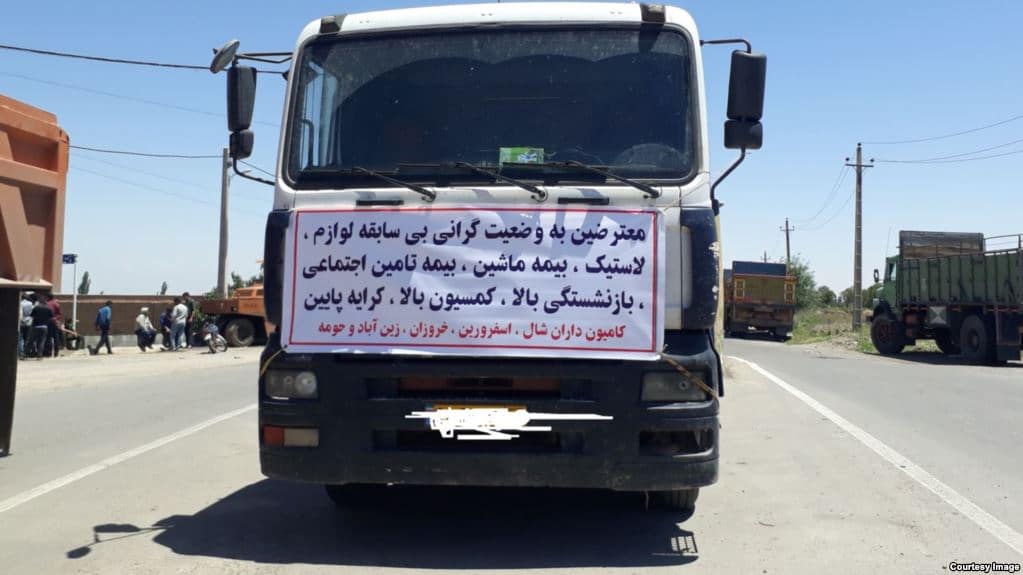A strike by Iran’s truck drivers is expanding, highlighting protests among workers across the country over economic conditions.
The strike began on May 22 over stagnant wages and rising costs for insurance, road tolls, commissions, repairs, and spare parts. Video clips are now circulating across social media of large numbers of trucks left by striking drivers in Isfahan, Kermanshah, and Razavi Khorasan Provinces.
From Kangavar in Kermanshah Province in western Iran:
♦️ فیلمی از نهمین روز #اعتصاب_کامیونداران در شهر #کنگاور #کرمانشاه pic.twitter.com/qebrVStogs
— VOA Farsi (@VOAIran) May 30, 2018
The idling of gasoline tankers has caused shortages at gas stations in some parts of the country, while port terminals are empty — from Bandar Abbas in southern Iran:
♦️ ویدئو – فیلم کوتاهی از اعتصاب رانندگان و کامیونداران بندرعباس در نهمین روز؛ پایانه حمل و نقل خلوت شده است pic.twitter.com/HeHNrEdB3j
— VOA Farsi (@VOAIran) May 30, 2018
Striking truckers say the Government has not responded to demands for higher wages for transporting cargo. Instead, authorities have sent text messages threatening to revoke drivers’ licenses unless the stoppends.
A report on May 24 by the Iranian Labor News Agency, quoting an official of the Roads and Urban Development Ministry, said fees to truckers will be raised by an average of 15%. However, there is no confirmation of implementation.
International truckers unions have expressed support for the strikers:
Iranian truck drivers in 25 provinces and 160 cities have been on strike over low pay, rising operating costs, increased tolls and other regulatory fees. #Teamsters stand in #solidarity with our Iranian brother & sisters! https://t.co/rageqo2hF8 @AdenaNima @ITFglobalunion #1u pic.twitter.com/HZAzp1jXxA
— Teamsters (@Teamsters) May 29, 2018
Demonstrations spread across Iran in January over political and economic concerns, amid rising youth unemployment, a historically-low currency, mismanagement, and US sanctions. While the regime was able to check the movement, protests have continued among groups such as teachers and farmers, as well as over specific issues such as the redrawing of city boundaries.

